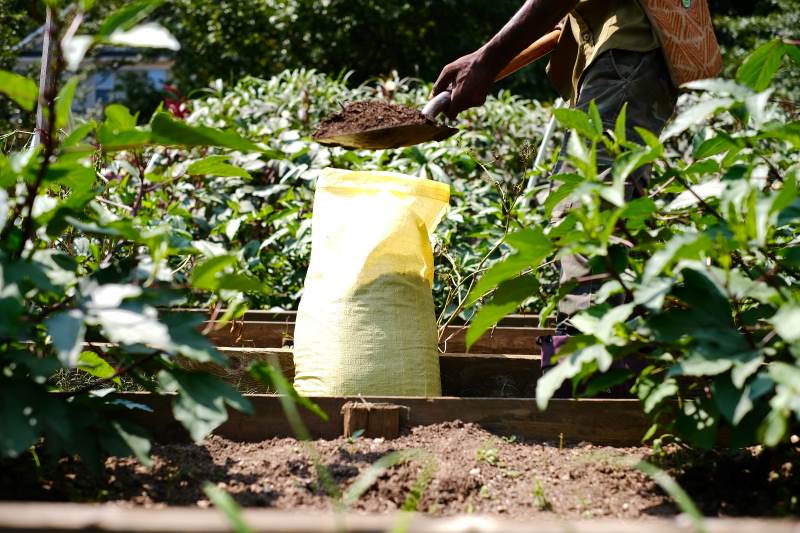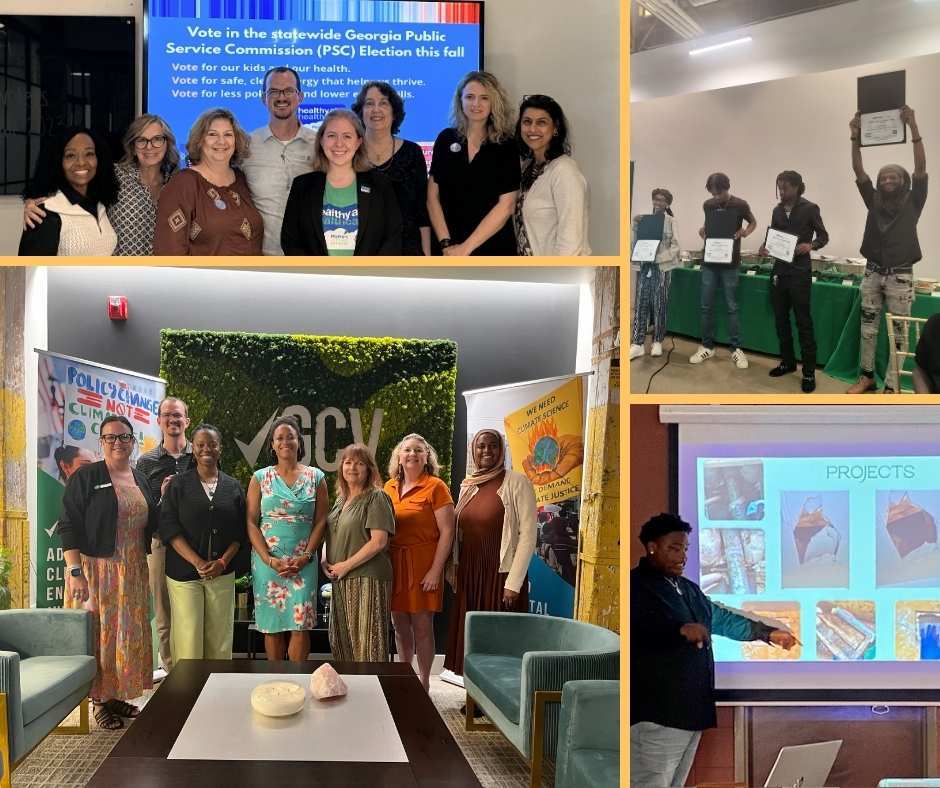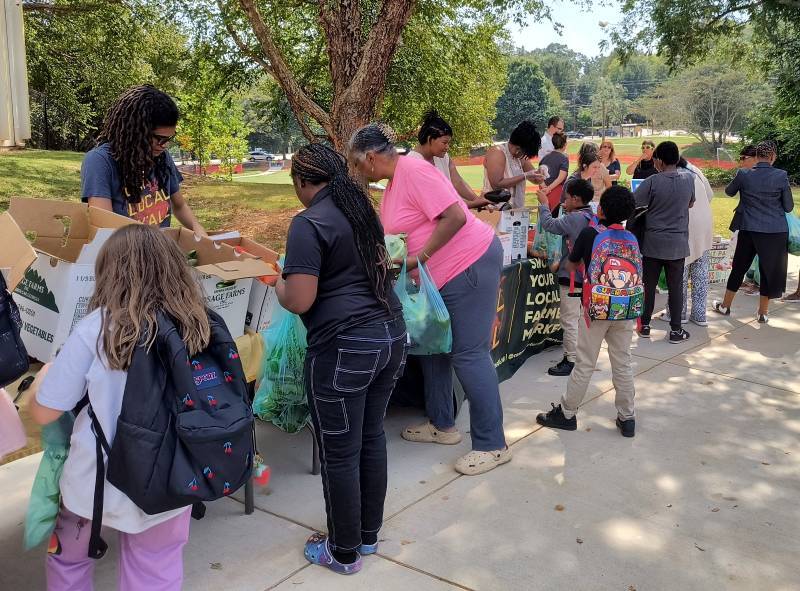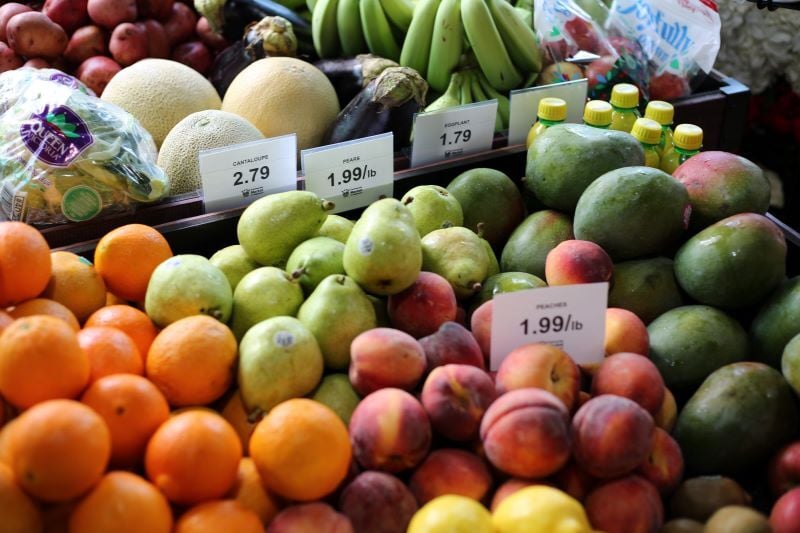Are Georgians interested in composting more at home, or participating in municipal or private composting programs? New research conducted by the University of Georgia seeks to understand current attitudes toward composting and how we can inspire more Georgia families to give it a try in their own backyards.
What Is Composting?
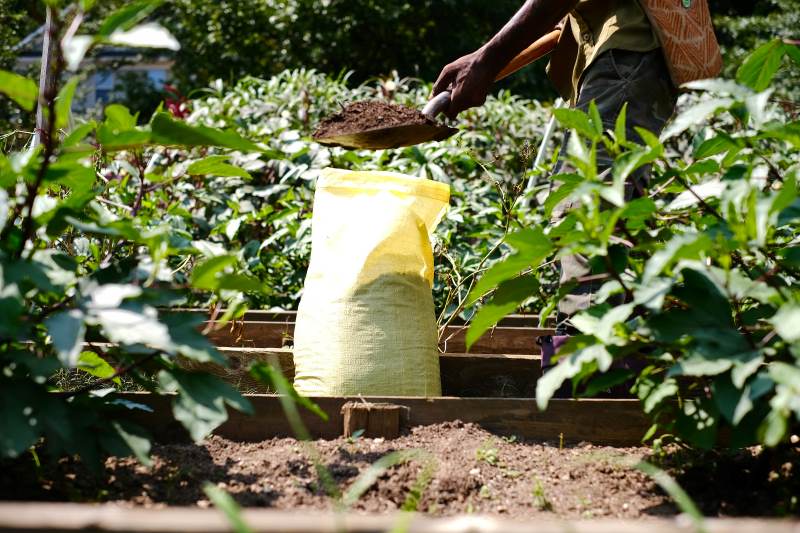
As you likely know, composting is one of the climate solutions Drawdown Georgia has identified for our state. But how does it work?
Composting is a natural process that transforms organic waste materials into a rich, nutrient-dense soil amendment known as compost. This process is a crucial component of sustainable waste management and soil health enhancement, and that’s what makes it a great climate solution.
How Does Composting Break Down Food Scraps?
At its core, composting involves the decomposition of organic matter by microorganisms under controlled aerobic (oxygen-rich) conditions. The process requires four main components: organic materials, moisture, oxygen, and microorganisms.
-
Organic Materials: These are typically categorized into "greens" and "browns." Greens are rich in nitrogen and include items like vegetable scraps, coffee grounds, and grass clippings. Browns are carbon-rich and include materials such as dried leaves, straw, and paper. A balanced mix of greens and browns is essential for optimal composting.
-
Moisture: Water is necessary for the microorganisms to thrive. The compost pile should be kept moist but not waterlogged, with an ideal moisture content of about 50-60%.
-
Oxygen: Aeration is crucial for the aerobic decomposition process. Turning the compost pile regularly introduces oxygen, which helps to speed up the breakdown of organic materials and prevents the production of unpleasant odors, like methane, associated with anaerobic decomposition.
-
Microorganisms: Bacteria, fungi, and other microorganisms are the primary decomposers in composting. These organisms break down organic materials into simpler compounds, ultimately producing humus—a dark, crumbly, and nutrient-rich substance.
How Does Composting Reduce GHG Emissions?
If those greens and browns (organic materials) end up in a landfill, they typically break down in an oxygen-starved (anaerobic) environment. So, instead of the greens and browns being converted to compost, their nitrogen, hydrogen, and carbon become stinky methane and odorless carbon dioxide, two powerful greenhouse gasses.
That is why composting made it onto DDGA’s list of solutions – it prevents the production of these greenhouse gasses.
Composting Methods: An Overview
There are several composting methods, each suitable for different scales and contexts:
-
Backyard Composting: This is the most common method for households. It involves creating a compost pile or bin in the yard where kitchen scraps and yard waste are added. Regular turning and monitoring are required to maintain the proper balance of moisture and aeration.
-
Vermicomposting: This method uses worms, typically red wigglers, to break down organic matter. It is ideal for small-scale composting, such as in apartments or offices, as it can be done indoors in specially designed bins.
-
Trench Composting: In this method, organic waste is buried in trenches or holes in the ground. This technique requires less maintenance as the decomposition occurs naturally underground, making it a good option for people with larger spaces.
-
Commercial Composting: Large-scale composting operations handle significant amounts of organic waste from municipalities, businesses, and agricultural operations. These facilities often use windrows, aerated static piles, or in-vessel composting systems to manage and accelerate the composting process.
Research Results: What Do Georgians Think About Composting?
In an effort to track the adoption of climate solutions in the state, researchers from the University of Georgia conducted a survey of Georgia residents earlier this year to understand the extent to which households in Georgia are composting their food scraps. (The survey also asked respondents about food consumption, waste and disposal methods, a subject for a future post.)
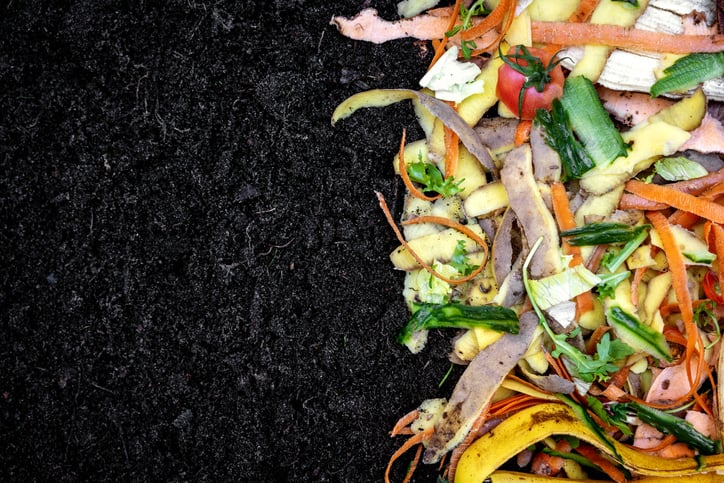
This survey will serve as a baseline for household composting and we hope to repeat the survey periodically to track changes over time. Here are some of the results from the composting section of the baseline survey.
-
The respondents came from rural (28%), urban (20%), and suburban (52%) communities, and composting behavior did not vary much across community type.
-
Less than 22% of respondents said they currently compost, with 17% composting at home and 5% composting at a facility away from their home. So, there is a lot of potential growth of this solution.
-
There were a lot of different reasons people gave for not composting, with the biggest reason being they did not know how (42%) and the next biggest reason being they did not feel their household had enough food scraps to compost (36%).
-
Suburban households were more concerned about pests (24%) and odors (23%) associated with composting than those living in rural or urban households.
-
Importantly, more than half (54%) of those who do not currently compost said they would be willing to try if they had more information and their compost concerns could be addressed. That means education efforts and demonstration projects could facilitate much broader adoption of household composting in Georgia.
Composting in Georgia
The household survey is only one way to collect information about household composting. Commercial-scale composting is also happening in the state and it would be great to get accurate data on those efforts.
If you have any information about composting organizations, activities, or data sources at the household or commercial scale, Drawdown Georgia would be delighted to learn about them. You may contact Jeff Mullen, one of the lead researchers on this study, via email at jmullen@uga.edu and enter “Compost Info” in the subject line, to ask questions or share information about your own composting projects.
Stay Up to Date on Georgia Climate Solutions Research
Don’t miss important updates on the latest research and other climate news in Georgia. Subscribe now to the Georgia Climate Digest and get the latest sent right to your inbox twice per month.


